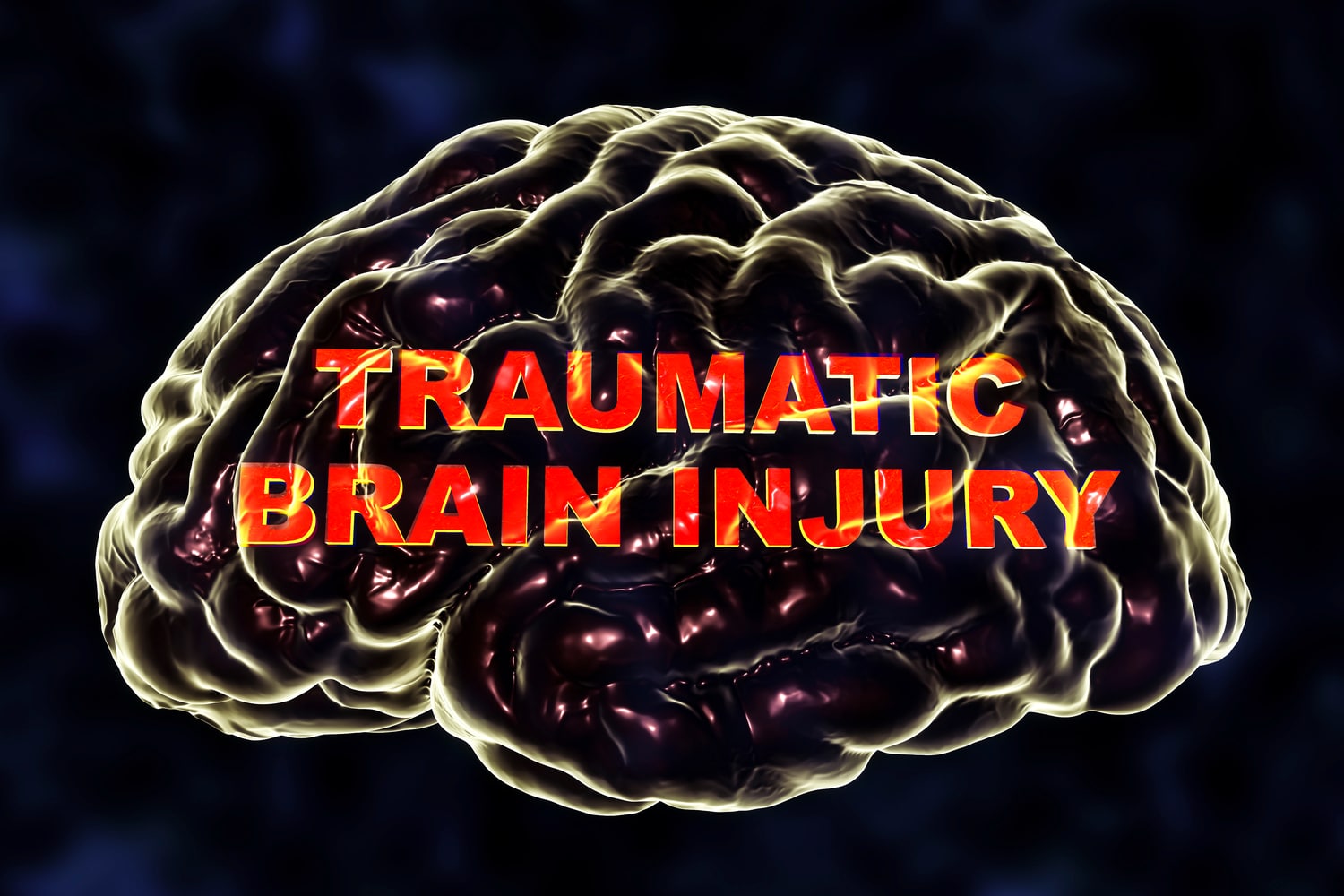It may only take a few weeks to recover from a mild concussion. However, most people with moderate or severe TBIs face a lifetime of challenges. We’ve worked with many TBI survivors, and we know that every brain injury is different.
At Crosley Law, we never lump every survivor into a single bucket. We take the time to get to know our clients’ situations, investigate their car accident or other injury claims, and consult with leading experts.
However, there are some common lessons that most TBI survivors and their families learn over time. In this article, we outline some of the essential things you need to know about living with TBI.
TBI Symptoms Can Impact Every Aspect of Your Life
TBI symptoms are diverse and include:
- Loss of consciousness
- Cognitive problems that make it hard to process and retain information
- Memory loss
- Mood changes
- Poor attention and concentration
- Mood and personality changes
- Impulsivity
- Depression and anxiety
- Headaches
- Nausea and vomiting
- Fatigue and sleep issues
- Seizures
- Problems with your balance and motor skills
- Blurred or doubled vision
- Ringing in your ears (tinnitus)
- Sensory issues that impact your taste and smell
Some TBIs are fatal, and you may need to relearn even basic skills, like dressing and feeding yourself, after a moderate or severe brain injury. A TBI’s physical and psychological symptoms can impact almost every aspect of your life.
If you’re having a hard time explaining how your life has changed after a traumatic brain injury, it’s a good idea to start a disability or symptom journal. Every day, take some time to list your daily symptoms, activities, and challenges. That way, you can accurately explain your issues to doctors, attorneys, insurance company representatives, and others.
Be Prepared for a Lot of Hard Work and Rehabilitation
No matter the severity of your head injury, you’ll probably work with a medical team that includes doctors, physical and occupational therapists, psychologists, and specialists like neurologists and speech therapists. If your TBI is very serious, you may even need to stay at a rehabilitation hospital or long-term care facility while you rebuild your strength and abilities. This will not be a simple or fast process.
Your family needs to get ready for an intense schedule of appointments, at-home exercises, and counseling sessions. It won’t always be fun, but it is essential to your recovery. When people get treatment for their traumatic brain injuries early on and continue with consistent care, they are more likely to recover some of their function and improve their symptoms.
Don’t Compare Your Progress to Someone Else’s Struggle
Again, there’s no such thing as a “standard TBI.” The human brain is a remarkably complex organ that helps us think, feel, move, and perform essential, subconscious functions like breathing and regulating our bodies’ temperatures. Many factors can affect how your brain injury impacts your daily functioning, including pre-existing conditions, the location of your injury, and its severity.
However, it’s completely normal to compare your abilities and progress with other brain injury survivors. While it’s inevitable that you’ll look for milestones, don’t take them too seriously. Many people experience most of their improvement in the first six months, but with hard work and the right medical team, your function may increase for years.
Can You Work After a TBI?
Many people continue working after traumatic brain injuries, especially mild TBIs. According to the Brain Injury Association of America, about 34% of TBI survivors were stably employed three years after their injury, and 61% of survivors reported some form of employment.
However, even if you can work, you may notice that it’s harder to get things done. Fatigue, memory problems, headaches, and attention deficits can complicate your workday and lead to absenteeism and performance issues.
You may be able to find ways to adapt to your TBI with help from vocational rehabilitation counselors, psychologists, and your doctors. Sometimes, it’s necessary to find a new line of employment or stop working altogether. In these cases, you may be entitled to compensation for your lost income or wage-earning capacity.
Can You Drive After a TBI?
Most of us value the independence we get from a driver’s license. If you suffer a mild TBI or concussion, you’ll probably be able to continue driving. However, after a moderate or severe TBI, you may be unable to drive a car for some time. For example, if you suffer seizures, you typically must be seizure-free for at least three months before you can drive. However, the Texas Medical Advisory Board, the organization that decides whether you’re medically capable of driving, also notes that head injuries can lead to losing your license.
If your doctor is worried about your ability to drive safely, you may have to undergo testing and assessments. Depending on your abilities and the severity of your symptoms, you may lose your driving privileges. However, between 40% and 60% of severe brain injury victims eventually regain their driving privileges, according to MSKTC, a center that studies injuries to the brain and spinal cord.
Traumatic Injuries Can Affect Your Relationships
If you or a loved one suffered even a mild traumatic brain injury, you might notice significant personality and mood changes. Impulsivity, mood swings, memory loss, speech and processing delays, and other symptoms can complicate your relationships with loved ones, co-workers, friends, and others. Some studies even report that people with traumatic brain injuries are more likely to divorce than the general population, although this data is disputed.
If you need help, reach out to counselors, support groups, and other resources. A support network can help both the TBI survivor and their loved ones understand and cope with their new reality. Additionally, you can demand compensation for your emotional losses during a traumatic brain injury claim or lawsuit.
Don’t Be Afraid to Ask for Help
As we mentioned above, the sooner you get consistent medical care and rehabilitation services, the better. In addition to occupational therapy, mental health services, and other traditional therapies, you may want to consider joining traumatic brain injury support groups. Connecting with fellow TBI victims and their loved ones can help build your brain injury awareness, identify practical solutions and healthy coping mechanisms, and create a sense of community. Many of our clients say that sharing their survivor stories helps them.
Get the Compensation and Answers You Deserve
Many TBIs occur during motor vehicle accidents, falls, and other situations that are outside the victim’s control. If someone else’s negligence caused your traumatic brain injury, you should consult a TBI lawyer. Insurance claims are notoriously complicated, and it may be difficult to manage your rehabilitation schedule and deal with the claims adjuster.
When you work with Crosley Law, we take care of all the legal and insurance-related details. We’ll keep you informed and educate you about your options, but we’ll also give you space to recover, grieve, and rebuild your “new normal.”
When you work with Crosley Law, we take care of all the legal and insurance-related details. We’ll keep you informed and educate you about your options, but we’ll also give you space to recover, grieve, and rebuild your “new normal.”
In a TBI claim or lawsuit, you may be able to demand compensation for your medical bills, long-term care needs, lost income, pain and suffering, and other damages. However, you should never accept the insurance company’s first settlement offer — it is probably unfairly low. Insurance adjusters often try to take advantage of unrepresented TBI survivors, offering them pennies on the dollar for their injuries.
Our injury attorneys have extensive experience handling traumatic brain injury claims and taking them to trial. We’ve recovered millions for TBI survivors and their families while holding at-fault drivers and business owners accountable for their reckless behavior.
Crosley Law: Fighting for TBI Survivors and Their Families
After a TBI, some individuals make a swift and complete recovery. Others struggle through treatment and rehabilitation but eventually report improvement. But some people’s lives are forever changed due to one unexpected event — one unanticipated injury. For these victims, the injury itself is only the beginning of the pain. No matter your family’s journey, the TBI lawyers at Crosley Law are here to help.
Our team has built a national reputation for our cutting-edge and compassionate approach to brain injury claims. Tom Crosley is a Brain Injury Association of America Preferred Attorney, a designation given to lawyers who have proven experience with complex TBI claims. If you’re ready to talk to a lawyer who truly understands brain injuries, contact us today.
You can reach Crosley Law by calling at 210-LAW-3000 | 210-529-3000 or using our quick and easy contact form.
References
Driving after traumatic brain injury. (n.d.) Model Systems Knowledge Translation Center (MSKTC). Retrieved from https://msktc.org/tbi/factsheets/driving-after-traumatic-brain-injury
Guide for determining driver limitation. (2018, March 29). Texas Medical Advisory Board. Retrieved from https://www.dshs.texas.gov/medical-advisory-board/
Kreutzer, J. (2009, January 30). The truth about divorce after traumatic brain injury. Brainline. Retrieved by https://www.brainline.org/article/truth-about-divorce-after-traumatic-brain-injury
Kreutzer, J.S., Marwitz, J.H., Walker, W., Sander, A., Sherer, M., Bogner, J., Fraser, R., & Bushnik, T. (2003). Moderating factors in return to work and job stability after traumatic brain injury. Journal of Head Trauma Rehabilitation, 18, 128-138. Retrieved from https://www.biausa.org/professionals/research/tbi-model-systems/return-to-work-and-job-stability-after-traumatic-brain-injury
Ponsford, J., Willmott, C., & Rothwell, A. (2002). Impact of early intervention on outcome following mild head injury in adults. Journal of Neurology, Neurosurgery & Psychiatry 73:330-332. Retrieved from https://jnnp.bmj.com/content/73/3/330
The content provided here is for informational purposes only and should not be construed as legal advice on any subject.









